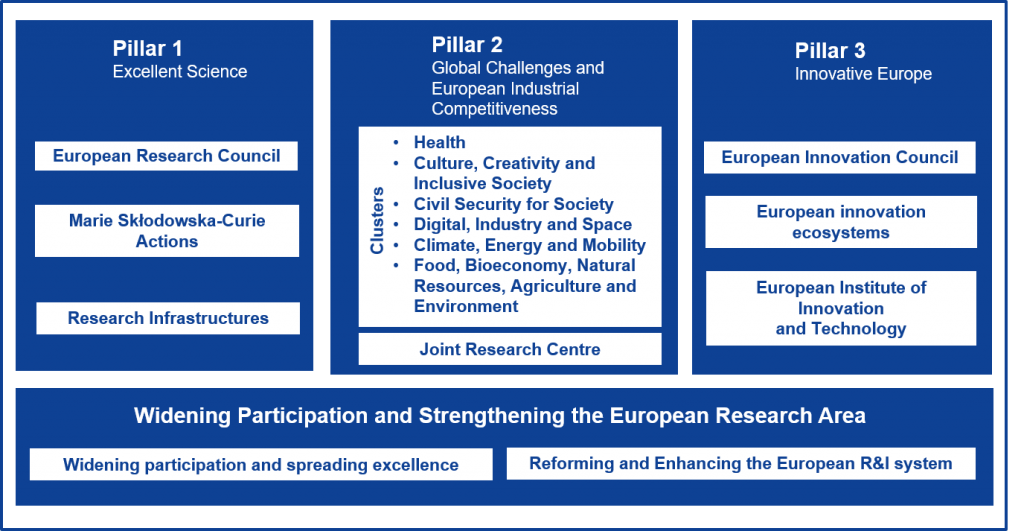NATEP: helping SMEs innovate in aerospace
Innovate UK, working with the Aerospace Technology Institute and the Department for Business, Energy and Industrial Strategy, has announced new funding for aerospace innovation projects. From 5th October, UK registered SMEs can apply for a share of £2.5 million for industry-led civil aerospace research projects.
Scope
This competition aims to help SMEs develop their own innovative technologies, thereby enhancing their capabilities and increasing their ability to win new business in the civil aerospace sector. Eligible projects must have a potential application within the civil aerospace sector. You can find information on specific themes here. More generally, all projects must have a credible route to market and preferably have identified their end-users.
Additionally, all projects should:
- Demonstrate improvement in business productivity and competitiveness
- Show clear benefits technically.
- Be able to pull through new technology or processes for use in a current or future product or manufacturing process.
- Show clear benefits in creating or safeguarding jobs.
- Be able to enhance capabilities within the broader aerospace industry, as well as other sectors e.g. advanced manufacturing.
Innovate UK intends to fund a portfolio of projects, across a variety of technologies, markets, and technological maturities.
Eligibility
Firstly, your project’s total eligible costs must be between £100,000 and £300,000. Furthermore, all projects must:
- Be collaborative
- Be led by a UK registered micro, small and medium-sized enterprise (SME)
- Start by 1 May 2021 and end by 31 October 2022
- Last between 12 and 18 months
This competition closes on 18th November 2020. You can find more information on eligibility, scope, and how to apply here. Before you start your application, check out our '5 steps to success' to ensure you write a competitive proposal.
Did you find this post useful? If so, subscribe to our free monthly newsletter to stay up to date on the latest grant funding opportunities.
European Green Deal: €1 billion available for innovative projects
One of the European Commission’s top priorities is to tackle climate change and make Europe climate-neutral by 2050. As a result, the Commission has launched a €1 billion call for research and innovation projects that respond to the climate crisis. Funded by Horizon 2020, the European Green Deal Call aims to drive Europe’s recovery from the coronavirus crisis by turning green challenges into innovation opportunities.
Due to the urgency of the challenges it addresses, the Green Deal Call aims for clear, discernible results in the short to medium-term, but with a perspective of long-term change. Therefore, there are fewer, but more targeted, larger and visible actions. The focus is on rapid scalability, dissemination, and uptake.
Scope
The projects funded under this call must deliver results with tangible benefits in ten areas. Firstly, there are eight thematic areas reflecting the key work streams of the European Green Deal:
- Increasing climate ambition
- Clean, affordable and secure energy
- Industry for a clean and circular economy
- Energy and resource efficient buildings
- Sustainable and smart mobility
- Farm to fork
- Biodiversity and ecosystems
- Zero-pollution, toxic-free environments
Secondly, there are two horizontal areas: strengthening knowledge and empowering citizens. They offer a longer-term perspective in achieving the transformations set out in the European Green Deal.
Furthermore, we are pleased to confirm that UK scientists, researchers, and businesses are eligible to apply for this funding. UKRI has confirmed that projects will receive funding for the lifetime of Green Deal projects, even if they continue beyond 31st December 2020 (when the UK’s period of transition out of the EU ends).
The closing date for applications is 26th January 2021, with selected projects expected to start in autumn 2021. For our assistance in putting together a competitive proposal, contact us today.
REDEEMA Awarded €345,566 from Eureka Eurostars
 RedKnight is delighted to celebrate its 5th birthday with another grant funding success story! A successful application to Eureka Eurostars has secured €345,566 for the South Wales-based Compound Semiconductor Centre Ltd and its partners. The REDEEMA consortium also includes Glasgow-based Amethyst Research Ltd and VTEC Lasers & Sensors, based in Eindhoven.
RedKnight is delighted to celebrate its 5th birthday with another grant funding success story! A successful application to Eureka Eurostars has secured €345,566 for the South Wales-based Compound Semiconductor Centre Ltd and its partners. The REDEEMA consortium also includes Glasgow-based Amethyst Research Ltd and VTEC Lasers & Sensors, based in Eindhoven.
The project, titled REsonant cavity DEtectors for Environmental Monitoring Applications (REDEEMA), aims to design and develop an inexpensive manufacturable (III-V semiconductor material based) resonant cavity enhanced photodiode (RCE-PD) infrared (IR) sensing array for monitoring greenhouse gases (GHGs), such as carbon dioxide, methane, and nitrous oxide. A paradigm in high sensitivity mid-IR GHG sensing, the REDEEMA sensor will aid existing analytical instrumentation in the intelligent field deployment of the quantitative analysers and in the determination of gas sources.
Many chemical compounds in the earth’s atmosphere act as GHGs, including water vapour, carbon dioxide, and methane. The percentage of environmentally significant trace gases is rising due to increased human activity. There is a critical need to track these changes to monitor the extent of global changes in the GHG composition of the atmosphere. It is also crucial to actively identify the sources of these emissions so that action can be taken to mitigate and effectively manage the releases.
In this regard, Amethyst's RCE-PD incorporates a unique and revolutionary design, which will be used in the development of next-generation IR detectors capable of meeting the demands of a vast range of applications. The resulting gas-detection system developed through REDEEMA will significantly improve performance over nearest state-of-the-art IR detectors, opening many new opportunities with environmental applications.
Dr. Wyn Meredith, Director at CSC, said of the successful application:
“The Redknight team supported our proposal by taking ownership of the specific requirements of the Eurostars application process, allowing our own staff to focus on the essence of the technical and commercial proposition. This accelerated the development of the bid and ultimately was a key factor in a successful outcome in a highly competitive process.”
Helping companies grow is RedKnight's core mission. For our assistance in putting together a competitive proposal for your business, contact us today.
Return of Innovate UK's Smart Grants
From Friday 28th August, UK registered organisations can apply to Innovate UK’s Smart Grants competition. £25 million is available for disruptive R&D innovations that have the potential to significantly impact the UK economy.
 Scope
Scope
Applications can come from any area of technology and be applied to any part of the economy. This includes the creative industries, science or engineering, and the arts, design and media. Projects can overlap with the grand challenge areas, although Innovate UK is also keen to support projects in other areas.
Your proposal must demonstrate:
- a clear game-changing, innovative and/or disruptive and ambitious idea leading to new products, processes or services
- an idea that is significantly ahead of others in the field, set for rapid commercialisation
- a strong and deliverable business plan that addresses (and documents) market potential and needs
- a clear, evidence-based plan to deliver significant economic impact, return on investment (ROI) and growth through commercialisation, as soon as possible after project completion
- a team, business arrangement or working structure with the necessary skills and experience to run and complete the project successfully and on time
- awareness of all the main risks the project will face (including contractor or equipment failure, recruitment delays, etc) with realistic management, mitigation and impact minimisation plans for each risk
- clear, considerable potential to significantly impact the UK economy and/or productivity in a positive way
- sound, practical financial plans and timelines that represent good value for money, which will always be a consideration in Innovate UK funding decisions.
Eligibility
Your application must include at least one SME. They can be the lead or a collaborative grant claiming partner. The project must start no later than 1 May 2021 and end no later than 31 May 2024.
Your project must also follow specific rules based on its duration:
- Projects with durations between 6 and 18 months must have total eligible project costs between £25,000 and £500,000. They can be single or collaborative projects.
- Project durations between 19 months and 36 months must have total eligible project costs between £25,000 and £2 million. They must be collaborative projects.
RedKnight Consultancy has significant experience in supporting applications for Innovate UK Smart Grants. You can view one of our most recent success stories here. For our assistance in putting together a competitive proposal, please contact us today.
APC 17: developing the UK’s low carbon automotive capability
The Advanced Propulsion Centre (APC) invests up to £30 million, three times a year, in collaborative research and development (R&D) projects. These are pre-production match-funded projects. This competition aims to support growth in advanced low carbon propulsion capability in the automotive sector. Up to £27m is available for UK-developed late-stage R&D.
Scope
Your project must concentrate on the automotive market as its primary application, demonstrating the development of on-vehicle technologies for on or off-road vehicles. Technologies may include motors, batteries, power electronics, hybridisation and alternative propulsion systems. Eligible projects will either:
- Accelerate the development of technologies capable of low and zero tailpipe emissions, considering their associated ‘cradle to grave’ supply chains, up to and including end of life.
- Demonstrate a significant reduction in carbon dioxide emissions leading to air quality improvements.
Additionally, your proposal should clearly align with the UK's Industrial Strategy and demonstrate how high-value R&D will take place in the UK as a result of this funding. APC is particularly interested in receiving applications for projects that support the UK's long-term supply chain, associated capabilities and growth aspirations. It is also important that your application demonstrates a positive impact on the UK economy. For example, it could create new supply chains to support the transition to electrification, or lower the overall cost of goods sold to customers.
Eligibility
Your project must:
- have total eligible costs between £5 million and £40 million
- be a minimum of 50% match funded
- start on 1st April 2021
- last between 18 and 42 months
APC 17 closes on 14th October 2020. You can find further information regarding eligibility, scope, and how to apply here. For our help in putting together a competitive proposal, please contact us today.
Sustainable Innovation Fund: Round 2
 Round 2 of the Sustainable Innovation Fund is now open for applications. Through Innovate UK, £26m is available for new projects focusing on sustainable economic recovery from COVID-19. The health pandemic has affected research and development across all sectors. Therefore, this competition aims to help all sectors of the UK rebuild, grow, and create new opportunities.
Round 2 of the Sustainable Innovation Fund is now open for applications. Through Innovate UK, £26m is available for new projects focusing on sustainable economic recovery from COVID-19. The health pandemic has affected research and development across all sectors. Therefore, this competition aims to help all sectors of the UK rebuild, grow, and create new opportunities.
Scope
Your proposal must show evidence of key challenges caused by Covid-19 and how your project can help solve them. Innovate UK is looking to fund a portfolio of projects across a variety of technologies, markets, regions, technological maturities, and research categories. Specifically, your project can focus on themes including:
- decarbonisation, circular economy and/or biodiversity
- climate change and environmental sustainability
- geographic or regionally targeted innovation
- innovation that is aimed at commercial or residential users
- innovations that work across more than one sector
- follow-on international opportunities that help the UK lead the world
Eligibility
This is round 2 of a potential 3, with the third scheduled to open in September. For round 2, proposals can only be from a single business. This means no more than one partner receiving grant funding on the application. However, subcontractors are allowed.
The funding will be made as a de minimis grant. De minimis aid provides public funding up to 100% of eligible costs. Your project’s total eligible costs must be between £50,000 and £100,000. Furthermore, your project must be ready to start by 1 November 2020 and last between 3 and 6 months.
The Sustainable Innovation Fund: Round 2 closes on the 2nd September 2020. You can find further information regarding eligibility, scope, and how to apply here. For our help in putting together a competitive proposal in a short timeframe, please contact us today.
Medi2Data Awarded Innovate UK Smart Grant
 RedKnight are delighted to have supported South Wales based Medi2Data with a successful application to Innovate UK. The healthcare software company will receive a Smart Grant of £259,100 to further develop its innovative mobile application, ‘eMR Health Passport.’
RedKnight are delighted to have supported South Wales based Medi2Data with a successful application to Innovate UK. The healthcare software company will receive a Smart Grant of £259,100 to further develop its innovative mobile application, ‘eMR Health Passport.’
Using the company’s flagship proprietary software, eMR, Medi2Data develops highly secure applications that make it simple for GP practices and patients to exchange data. The project, titled eMR Health Passport – A patient-centric mobile application to securely hold and transmit medical data, aims to further enhance the technology’s potential by developing a fully interactive app that will securely hold a copy of the patient’s medical record in an easy-to-navigate format.
Crucially, eMR Health Passport provides a digital solution to two of today’s most pressing healthcare challenges: 1) GPs are becoming overwhelmed by GDPR requirements for data handling and requests for patient medical records from third parties, costing primary care an estimated £70m. Medi2Data estimates these costs could be considerably reduced by using eMR technology and interfacing through the health passport with the patient. 2) eMR Health Passport also offers a novel solution to rising levels of mental illness, distress, and low wellbeing among UK Higher Education students. It provides students with the first free patient-centric health wallet with access to real-time data monitoring performance.
The interactive app will allow users to control who sees their medical data, ensuring appropriate consent. Information stored in the app can be pushed back to their GP practice from health organisations outside the NHS, or overseas, and ‘redacted’ records can be created for authorised third parties to receive.
The enhanced application will allow users to access and update their health record from anywhere in the world at any time, improving patient outcomes and the relationship between GP and patient.
Mr Richard Freeman, CEO of Medi2Data said of the success,
“We’re delighted to be receiving this grant from Innovate UK in order to develop and enhance our proprietary technologies. The Smart Grant means we can build on our achievements and test new innovative software and applications that not only gives patients control of their medical data, but has the potential for significant societal impact in how healthcare services are delivered for decades to come.
The support we received from RedKnight was excellent. Their professional approach and knowledge of the process was crucial in helping us secure the funding.”
Helping companies grow is RedKnight's core mission. You can find out more about the types of projects we support here.
BEIS Funding Allocations 2020-2021
BEIS 2020-21 Funding Allocations reveal a huge boost for UK research and innovation.
The Chancellor’s 2020 Budget included ambitious plans to increase public research and development (R&D) investment to £22 billion by 2024. This is the largest and fastest ever expansion of funding for research and innovation, taking direct support for R&D to 0.8% of GDP. It places the UK among the top quarter of OECD nations.
The Government remains committed to meeting this goal, despite the uncertainty caused by the Coronavirus pandemic. The Department for Business, Energy and Industrial Strategy (BEIS) is moving forward with its plans, confirming allocations of the R&D budget for 2020-2021. As a first step towards meeting this ambition, £10.36 billion of funding is being allocated to BEIS programmes and partner organisations this financial year.
The funding includes:
- investment in world-leading science and advanced mathematics
- investment in Net Zero technologies in the energy, automotive and aerospace sectors
- support to immediate efforts to respond to COVID-19, including sponsoring efforts to manufacture and trial a vaccine
- investment to secure and maintain the essential talent and infrastructure needed to deliver cutting-edge research.
In short, funding for public sector research establishments will enable the UK to be at the forefront of fusion energy technology. It will also deliver world-leading meteorological and climate science, develop cutting-edge quantum measurement techniques, and capitalise on the UK’s space capabilities. In a move aimed at creating stability during the pandemic, BEIS is providing further support to R&D intensive businesses and higher education institutions.
If you're interested in viewing the full list of R&D allocations for this financial year, click here. Alternatively, to discuss funding opportunities with one of our specialist advisers, please contact us today.
Interested in staying updated on the grant funding landscape? Sign up to RedKnight’s free monthly newsletter and receive our expert insights direct to your inbox.
Horizon Europe: New Horizons for European Funding
2020 marks the end of Horizon 2020, the EU’s biggest ever EU Research and Innovation programme, which has provided nearly €80 billion of funding over 7 years (2014-2020). Succeeding Horizon 2020, Horizon Europe will run from 2021 to 2027 to ensure that Europe remains a world-class leader in Research and Innovation. The European Commission will invest €100 billion into Research and Innovation that will shape the future of Europe, making it the most ambitious programme of its kind.
“With Horizon Europe, we want to build on this success and continue to make a real difference in the lives of citizens and society as a whole.”
-European Commission Vice-President Jyrki Katainen, responsible for Jobs, Growth, Investment and Competitiveness.
Preliminary Structure of Horizon Europe

Like Horizon 2020, the programme will have three pillars. The first will fund excellence in science, supporting frontier research projects designed by researchers through the European Research Council. The second pillar focuses on Global Challenges and European Industrial Competitiveness. It will support research into societal challenges and reinforce technological and industrial capacities. It also sets ambitious EU-wide missions to tackle some of Europe’s biggest problems, including health and climate change. Thirdly, the Innovative Europe pillar aims to increase Europe’s prowess in market-creating innovation and SME growth through the European Innovation Council.
Following the Horizon 2020 Interim Evaluation, the European Commission has implemented several changes to support Research and Innovation across Europe. For example, they will support breakthrough, high-risk innovation through the creation of the European Innovation Council. This will help innovators to create new market opportunities. Additionally, through the launch of new missions with bold, ambitious goals, Horizon Europe will create more impact across Europe. An open science policy will enable better science through collaborative ways of producing and sharing knowledge and data. Further, an emphasis on widening participation will help low Research and Innovation performing Member States to participate in Horizon Europe.
Despite the uncertainty caused by Brexit, we are hopeful that the UK will remain a part of the Horizon Europe research programme. If you'd like to discuss European funding with one of our specialist advisers, please do not hesitate to contact us today.
To stay updated on the grant funding landscape, sign up to our free monthly newsletter, and receive expert insights direct to your inbox.
